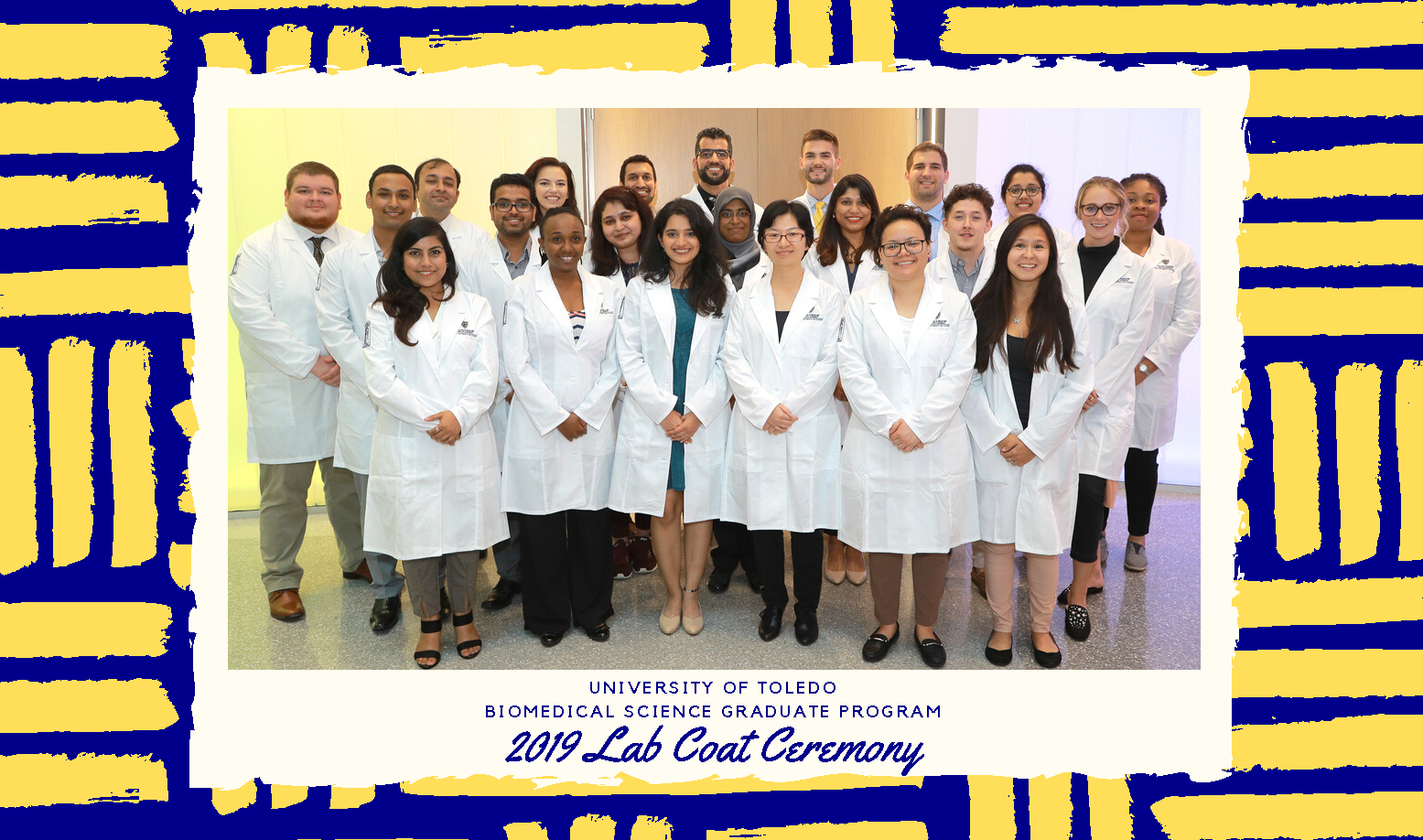2019 News and Awards
MMI University of Toledo 2019-2020 Graduate Research Awardees
Congratulations to Gayatri Subramanian!

Gayatri Subramanian, PhD candidate in the laboratory of Dr. Saurabh Chattopadhyay, Assistant Professor, in the Department of Medical Microbiology and Immunology, was recently awarded the
University of Toledo 2019-2020 Graduate Research Award. This UToledo Graduate Student Association (GSA) Graduate Research Award will provide $2,000 towards Gayatri’s research project that focuses on understanding
how herpes simplex virus – 1 (HSV-1), a major human pathogen, hijacks host proteins
to its benefit. Current approach to address this question is by using cellular and
molecular techniques, such as genetic and pharmacological inhibition of the host protein,
which HSV-1 depends on. The target protein was identified in the process of understanding
the antiviral mechanisms of a novel interferon stimulated gene (ISG), Tudor domain
containing protein 7 (Subramanian et al, PLoS Pathogens, 2018). The GSA award will
help investigate the molecular mechanisms of this novel host-virus interaction.
Congratulations to Brenden Tully!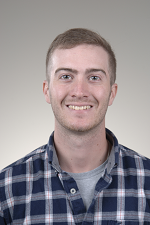
Brenden Tully, MSBS student in Dr. Jason Huntley’s lab in the Department of Medical Microbiology
and Immunology, recently was awarded the University of Toledo 2019-2020 Graduate Research
Award. This UToledo Graduate Student Association (GSA) Graduate Research Award will provide $2,000 towards Mr. Tully’s research project to study how the highly-infectious
and deadly bacterium, Francisella tularensis – the causative agent of tularemia, infects different U.S. tick species and identify
which tick species poses the greatest risk to human health. Climate change has led
to significant expansion of the geographic ranges of different tick species in the
U.S. Ticks are known to harbor and transmit dozens of infectious diseases to humans,
including Lyme disease, Rocky Mountain Spotted Fever, and tularemia. Two ticks, the
American dog tick and the Lone Star tick, are believed to be the primary tick vectors
for tularemia but actual data is severely lacking. Mr. Tully has developed a mouse-tick-F. tularensis infection model to naturally infect both American dog ticks and Lone Star ticks ticks
with F. tularensis, examine bacterial replication in each tick, and test transmission efficiency of
infected ticks to naïve mice.
MMI researcher collaborates with others from across UToledo on $830,000 R01 grant
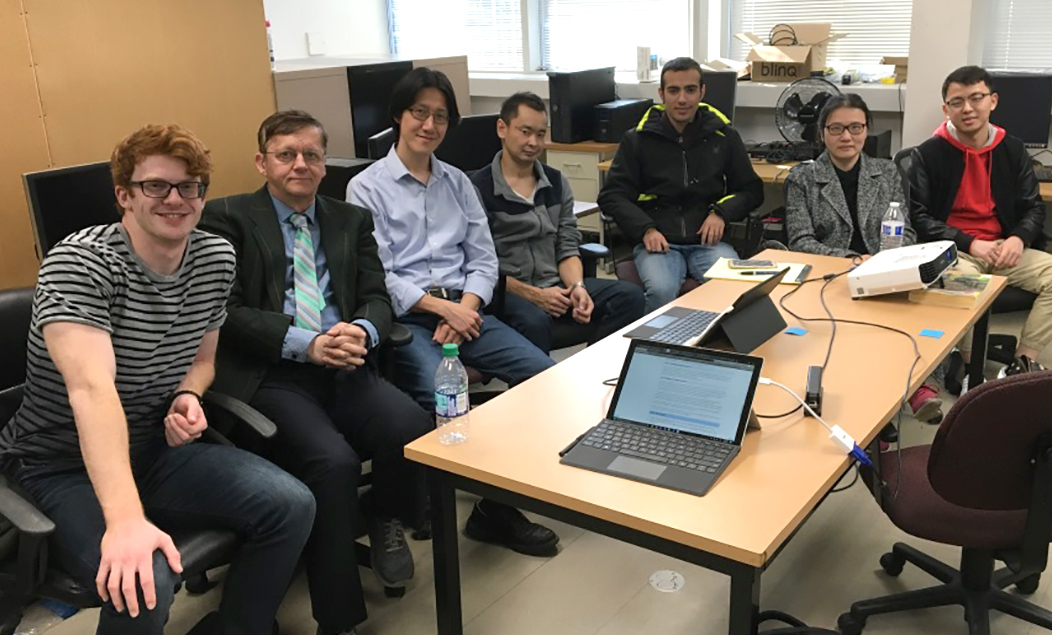
Pictured from left, Michael Sloma (BS student in Computer Science & Engineering), Dr. Stanislaw Stepkowski (Professor, Department of Medical Microbiology & Immunology), Dr. Kevin Xu (Assistant Professor, Electrical Engineering & Computer Science Department), Dr. Dulat Bekbolsynov (Post-doctoral Fellow, Department of Medical Microbiology & Immunology), Mohammadreza Nemati (MS student in Computer Science & Engineering), Dr. Tian Chen (Assistant professor, Department of Mathematics & Statistics), and Zhipeng Huang (PhD student in Computer Science & Engineering)
Dr. Stanislaw Stepkowski, professor in the Department of Medical Microbiology and Immunology, and his colleagues from across UToledo, Dr. Kevin Xu in Electrical Engineering and Dr. Tian Chen in Mathematics, have been awarded an $830,000 (direct and indirect cost) 3-year RO1 grant from a joint NSF/NIH program, entitled “Machine learning and network science approaches for prediction of kidney transplant survival.”
Chronic kidney diseases affect about 10% of adults in the United States, often leading to kidney failure that is called end-stage renal disease (ESRD). For patients with ESRD, kidney transplantation is the best treatment compared to dialysis in terms of patient survival, quality of life, and cost. Unfortunately, most patients with ESRD remain on dialysis primarily because of insufficient number of donors. This shortage of kidneys is further complicated by the fact that the average kidney graft survival is only 10 years for grafts from deceased donors and only 12 years from living donors. Patients who lose their kidney transplants are listed again on the waiting list.
The human leukocyte antigens (HLAs) of the organ donor and recipient are known to be a significant contributing factor to graft survival times due to HLA immunogenicity. Seminal work documented that kidney transplant survival is the best without mismatched HLA-A/B/DR antigens and the worst with all six mismatched HLA-A/B/DR antigens (three from father and three from mother). However, preliminary analysis showed that the number of mismatches is as important as the quality of mismatches.
Consequently, their research plan is to use the power of machine learning in predicting the impact of each of the unique mismatches on kidney allograft survival. Some of these unique donor/recipient HLA mismatches are associated with short graft survival times whereas other mismatches are associated with long graft survival times. The intention is to use machine learning capabilities to predict the potential for extended graft survivals for multiple mismatches, based on similarities. Overall approach is to design and integrate new algorithms ─ based on past graft survival data analyses ─ to predict the impact of each unique HLA disparity for every possible donor/recipient combination. Accurate prediction of graft survival times can improve patient transplant outcomes by enabling more efficient allocation of donors and recipients, particularly by reducing the number of re-transplants due to graft failure caused by a poorly matched donor.
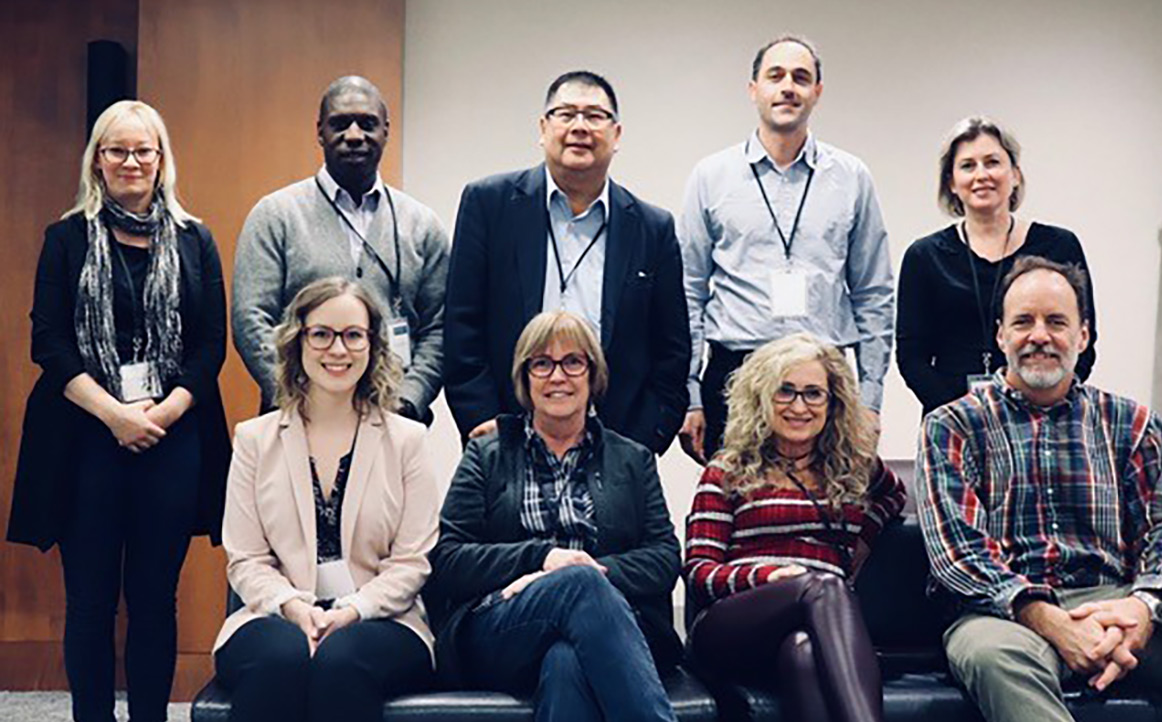
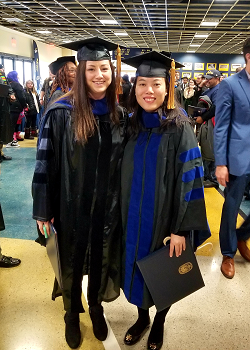
Jin Chen, Ph.D.

Congratulations!
Jin Chen successfully defended her dissertation titled: "Role of Complement Regulatory Protein Properdin in Hemolytic Anemias Caused by Complement Dysregulation".
Advisor: Viviana Ferreira, D.V.M., Ph.D.
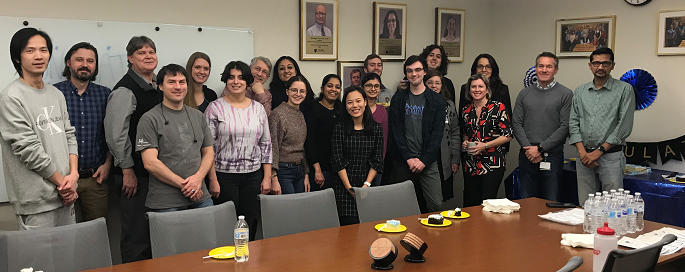
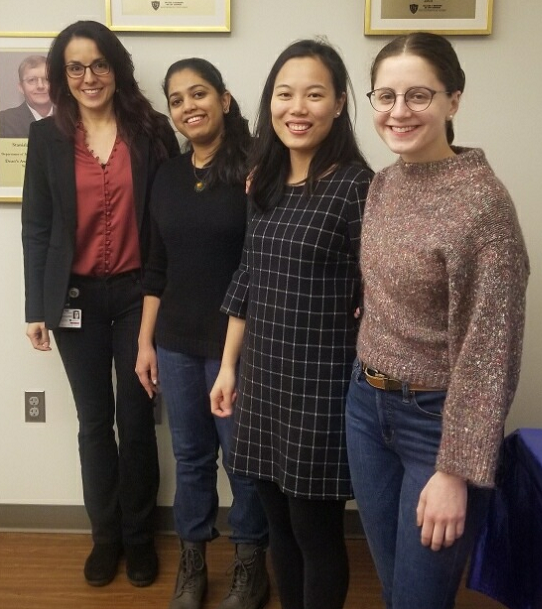
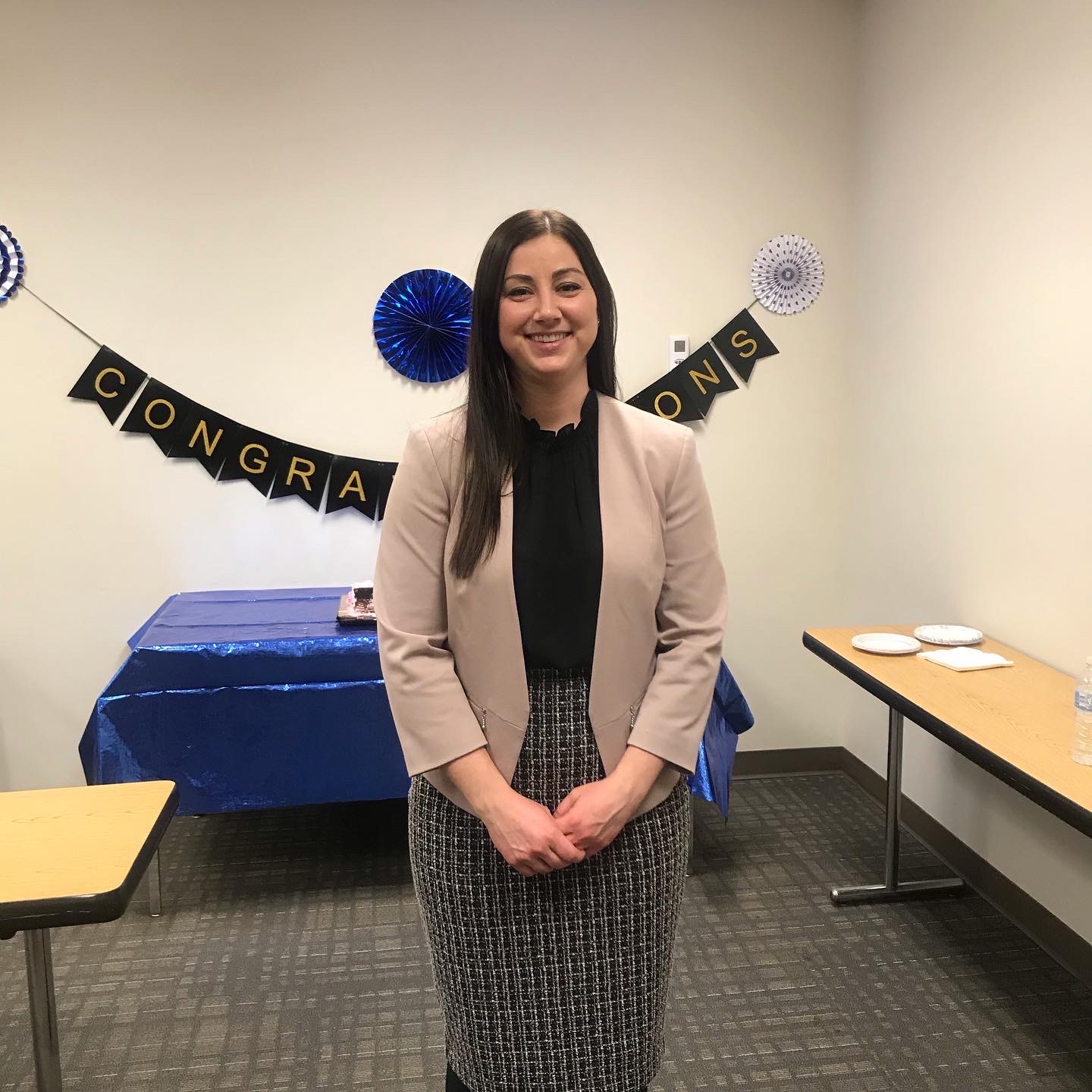
Congratulations!
Briana Zellner successfully defended her dissertation titled: "Characterization of a novel Francisella tularensis virulence factor involved in cell wall repair".
Advisor: Jason Huntley, Ph.D.
Email: Briana.Zellner@utoledo.edu
In October, Dr. Saurabh Chattopadhyay, Assistant Professor, and his graduate students Anna Glanz (MSBS student) and Gayatri Subramanian (PhD student) attended the 1st Midwest Virology Symposium held at Ohio State University, Columbus. Anna presented a poster titled "Novel regulators of IRF3-mediated antiviral apoptotic pathway" which was selected for a 1-minute flash talk and Gayatri presented a poster "Interferon-inducible protein TDRD7 inhibits the autophagy-initiating kinase, AMPK to inhibit virus replication" which was selected for a short talk. Both students received a travel award for their respective presentations.
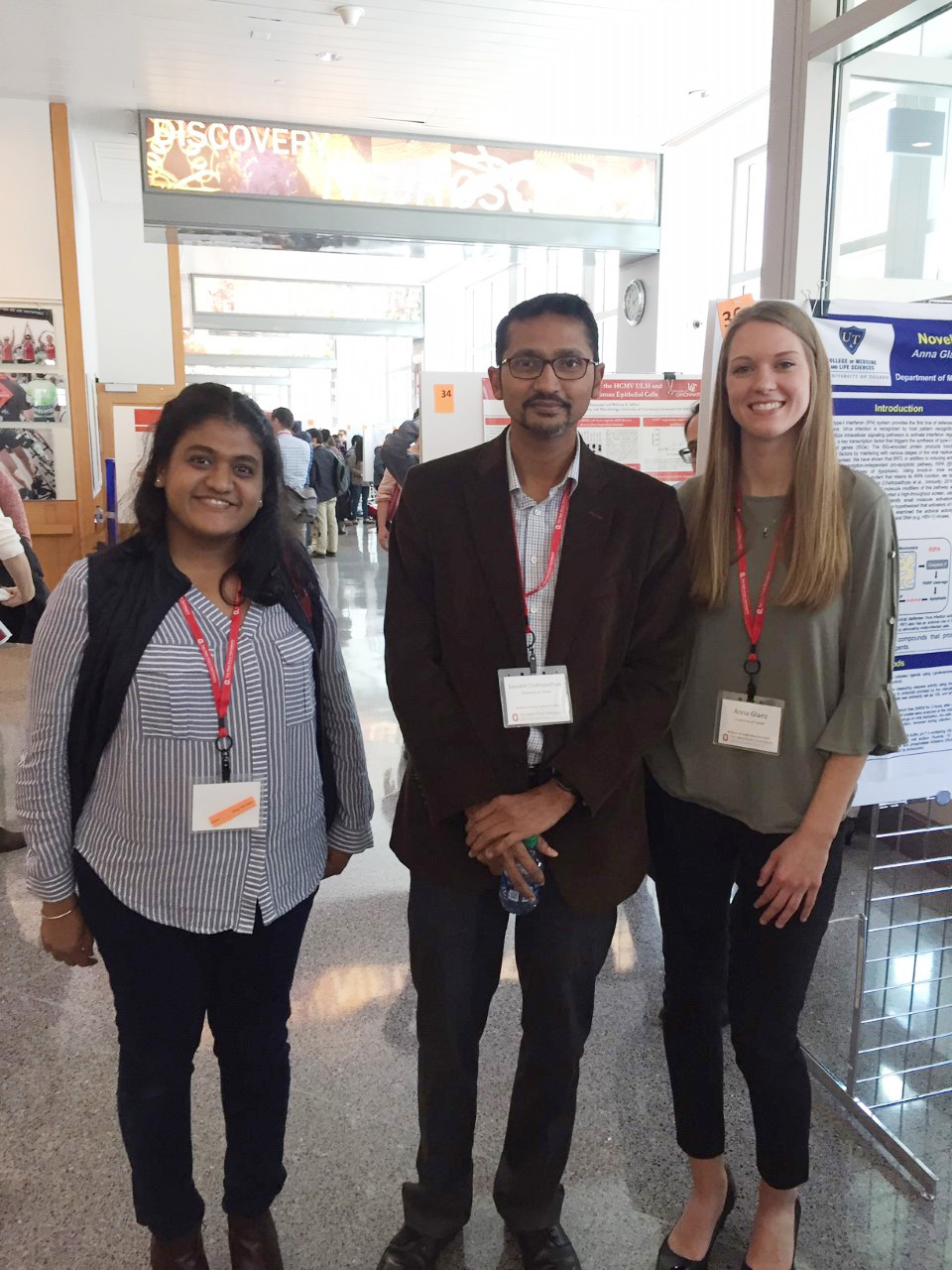
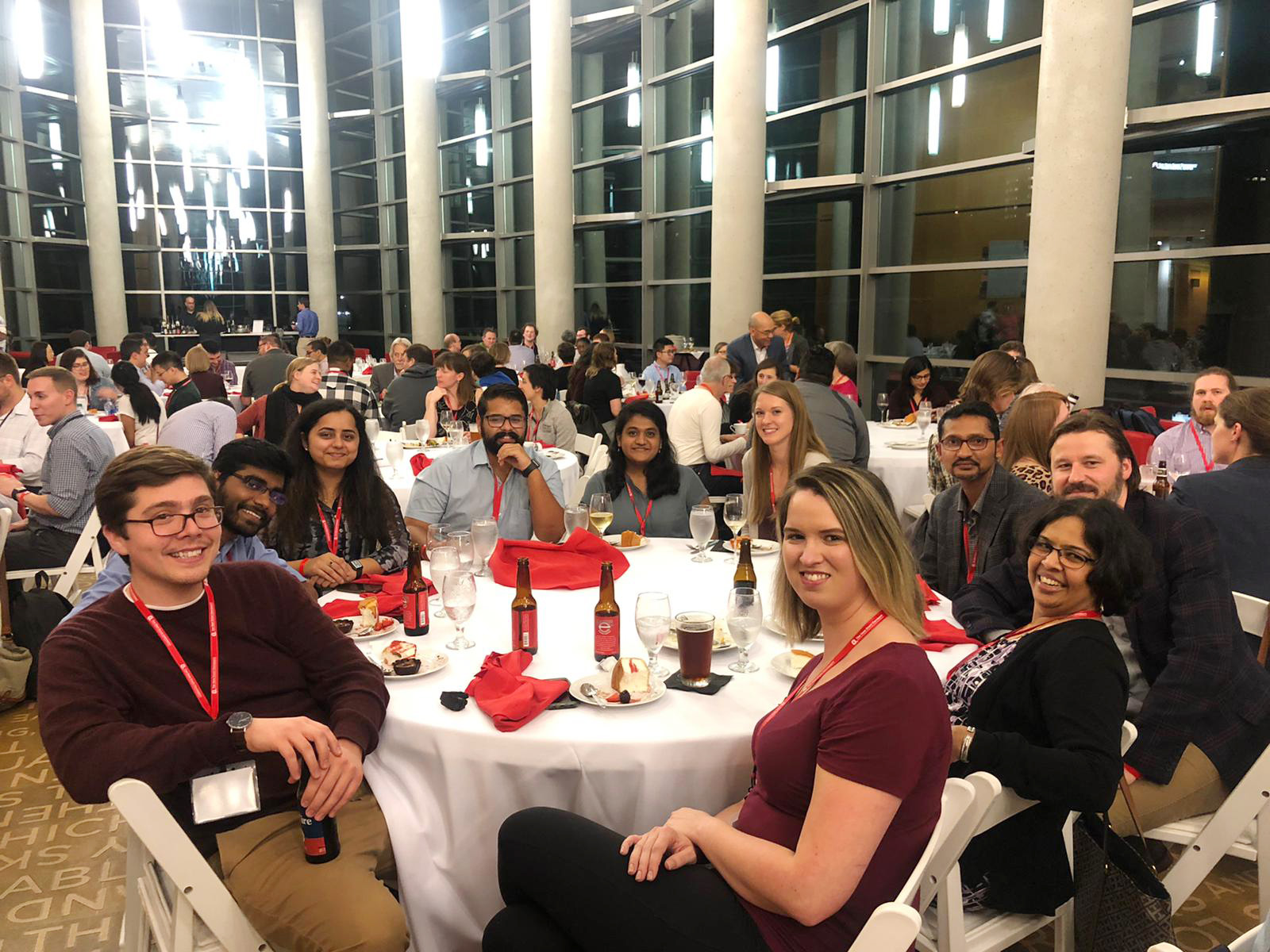
The symposium was also attended by Dr. Travis Taylor, Assistant Professor, MMI, and Dr. Malathi Krishnamurthy, Associate Professor, the Department of Biological Sciences, UT-Main Campus. Graduate students from the laboratories of Dr. Krishnamurthy and Dr. Scott Leisner, Chairman, the Department of Biological Sciences, also presented their research at the symposium.
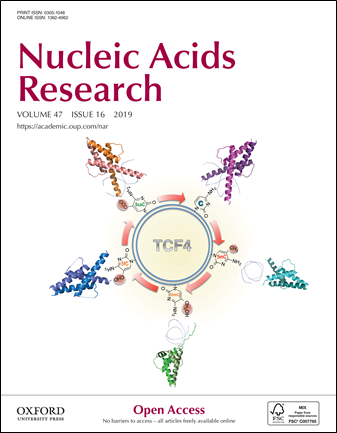

Dr. Bob Blumenthal, Distinguished University Professor in the Department of Medical Microbiology and
Immunology, and Director of the Program in Bioinformatics, has the cover article in
a recent issue of the journal Nucleic Acids Research (impact factor 11.1) in September. It is his third cover article for that journal,
all of them with his long-time collaborator, x-ray crystallographer Dr. Xiaodong Cheng
(currently at M.D. Anderson in Houston). The article is titled Structural basis for preferential binding of human TCF4 to DNA containing 5-carboxylcytosine. TCF4 is a transcription factor, and certain mutations in its gene are associated
with schizophrenia or Pitt-Hopkins syndrome. Dr. Blumenthal is interested in DNA methylation,
and 5-carboxylcytosine is a modified DNA base resulting from enzymatic oxidation of
5-methylcytosine.
The article is available here: https://academic.oup.com/nar/article/47/16/8375/5488531
the huntley lab was recognized for their contribution to fighting harmful algal blooms

Click Here to learn more about the UToledo researchers working on protecting Toledo's drinking water.
Dept. of Medical Microbiology and Immunology
hosts nationally-recognized conference
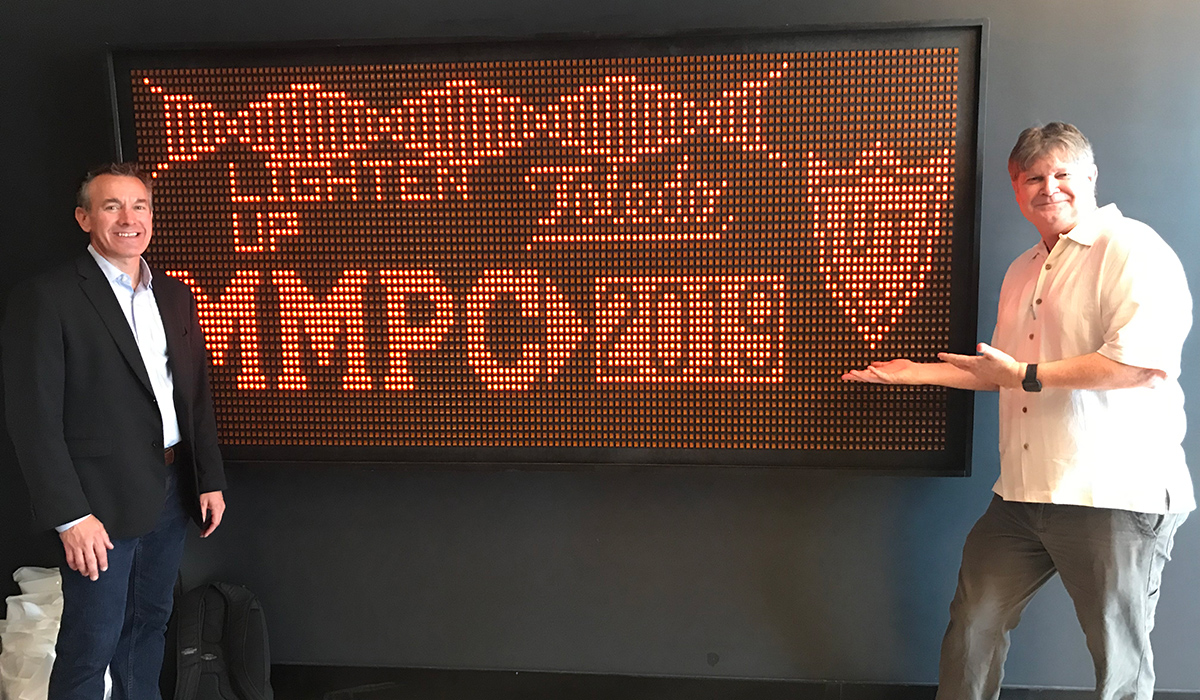
The Department of Medical Microbiology and Immunology recently hosted the Midwest Microbial Pathogenesis Conference (MMPC) at the Renaissance Hotel in downtown Toledo on September 20-22, 2019.
Drs. Jason Huntley and R. Mark Wooten served as co-chairs for MMPC. Nearly 300 physicians and scientists from across the
country met in Toledo for three days to present and discuss cutting-edge research
on ways to prevent and treat infectious diseases caused by bacteria, viruses, fungi,
and protozoal pathogens.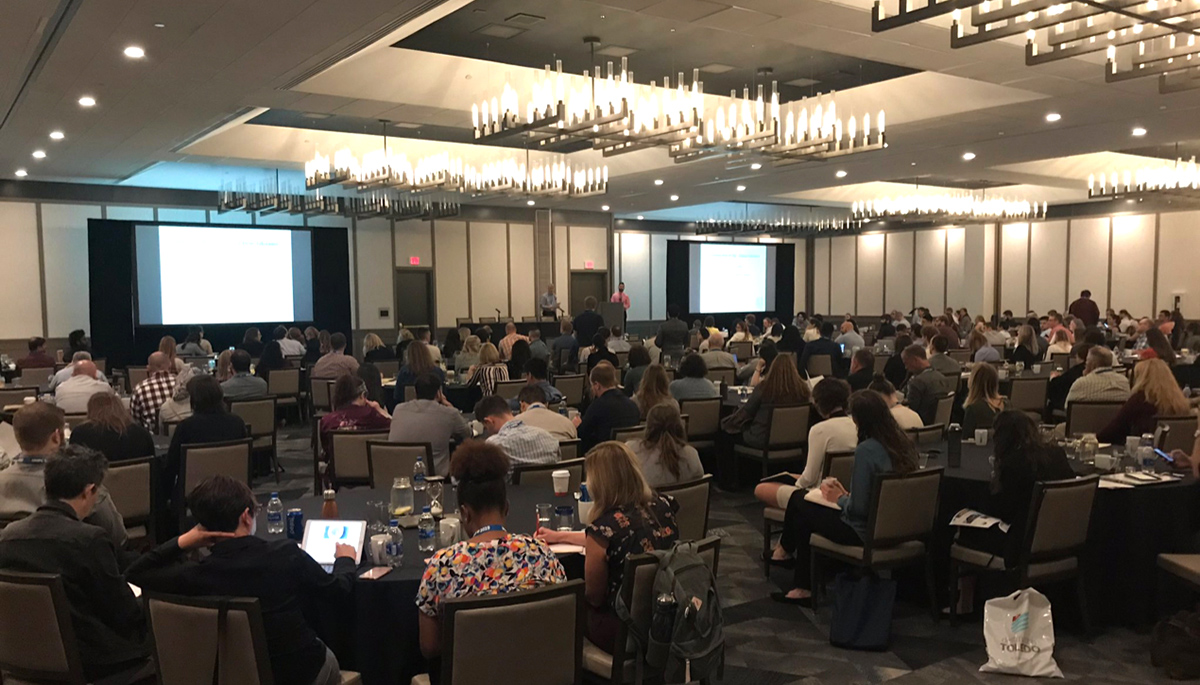
This was the 26th annual MMPC, which is nationally-recognized for promoting the development
of young investigators in the Midwest U.S. into the next generation of research scientists
by inviting newly-hired Assistant Professors, postdocs, and graduate students to present
their latest research findings. MMPC featured 27 research presentations by invited
speakers, 157 poster presentations, an interactive career panel, and a keynote presentation
by Dr. Peggy Cotter, Professor and Associate Chair of Microbiology and Immunology
at the University of North Carolina Chapel Hill School of Medicine.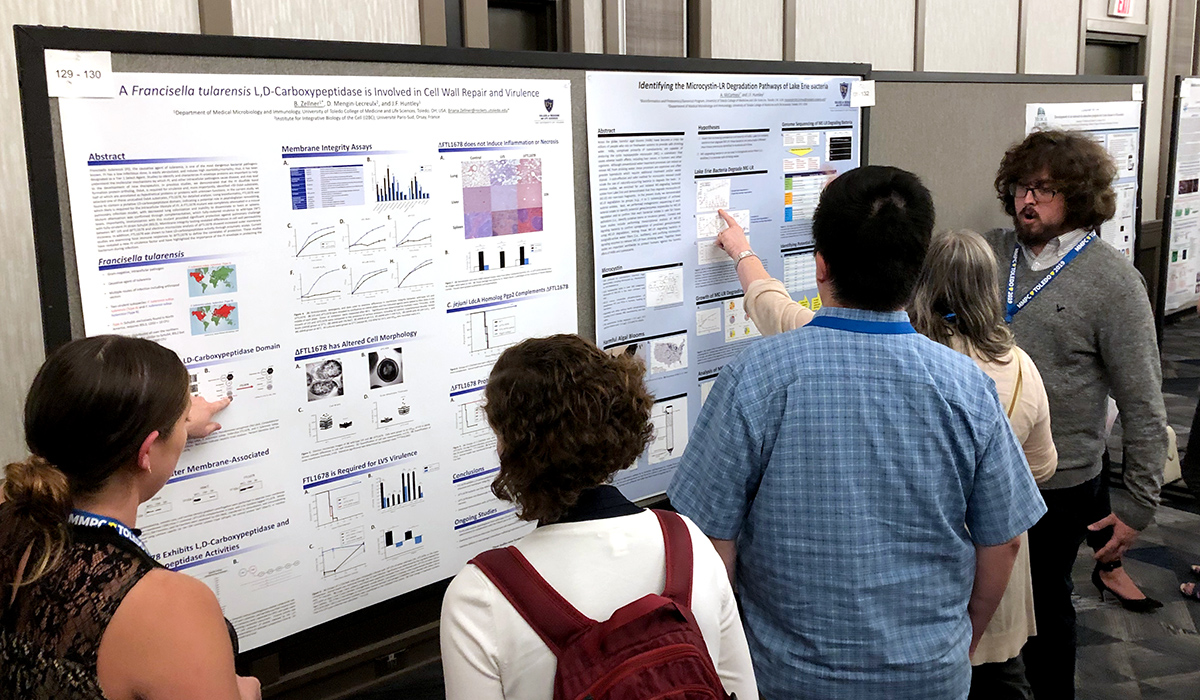
During the poster session, graduate students Briana Zellner and Alex McCartney,
both in Dr. Huntley's lab, explain their posters to MMPC participants.
Congratulations to Apurva Lad, lead author on an article about microcystin toxin in the lab of Drs. Kennedy and Haller (UT News 9/19/19).
"Chronic Low Dose Oral Exposure to Microcystin-LR Exacerbates Hepatic Injury in a Murine Model of Non-Alcoholic Fatty Liver Disease" in Toxins

2019 COMLS Faculty and Staff Recognition Dinner

Viviana Ferreira, D.V.M, Ph.D.
Congratulations to Brianna Zellner on her Toledo Blade article, "Recognizing tularemia could one day save your life" published on 8/5/2019.
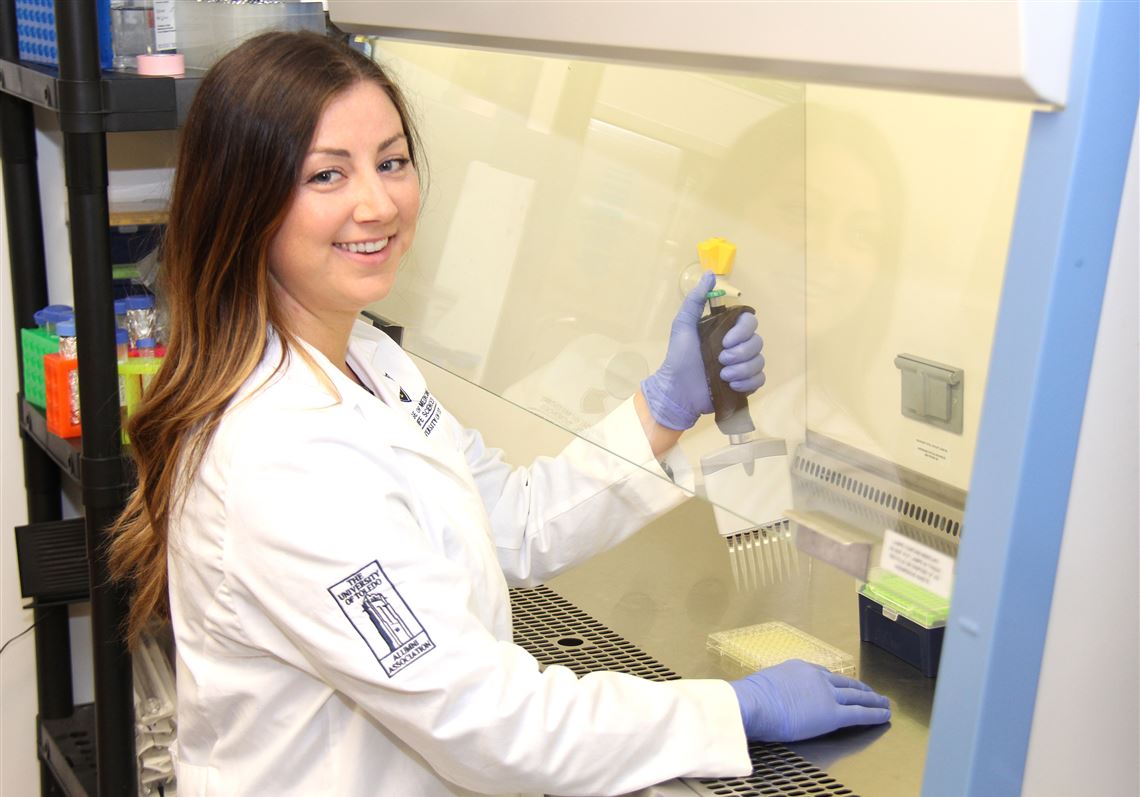
Muhammed Saad Moledina, Ph.D.

July 22, 2019
Congratulations!
Saad Moledina successfully defended his dissertation titled: "Role of Bb-elicited IL-10 in Suppression of Innate Immune Responses within Murine Skin Tissue".
Future Plans:
Clinical Research Associate, Medpace, Inc.
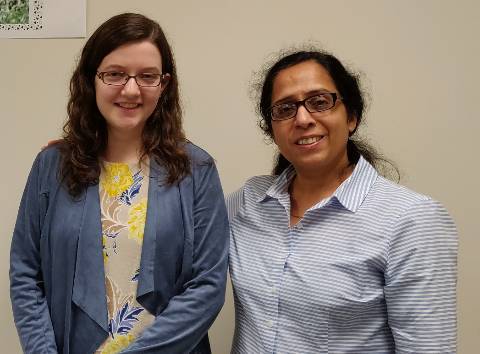
Congratulations!
Cara Peter successfully defended her thesis titled: "The Role of 14-3-3ζ in IL-17A Signaling".
Advisor: Ritu Chakravarti, Ph.D.
Email: Cara.Peter@rockets.utoledo.edu
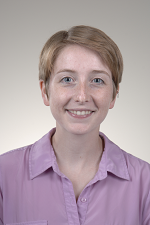
Congratulations!
Advisor: Jyl Matson, Ph.D.
Future Plans:
Postdoc at the Rocky Mountain Labs
Email: Cara.DeAngelis@utoledo.edu
Congratulations to the Huntley lab who was featured on the local news in April 2019 for their research on the algal
bloom.
Huntley’s research lab recently made major progress in his mission to create a biofilter
that uses naturally occurring Lake Erie bacteria to remove microcystin released by
harmful algal blooms from drinking water, reducing or eliminating the use of chlorine
and other chemicals.
"Gene Therapy Leaves a Vicious Cycle" in Frontiers in Oncology

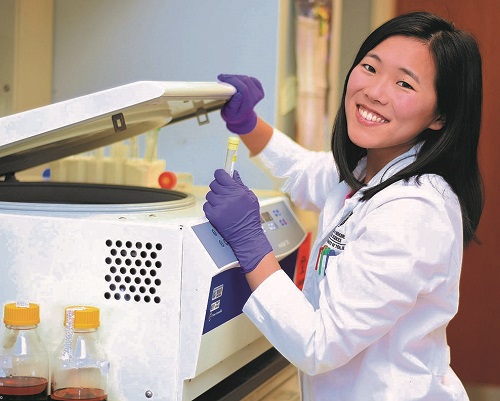
Congratulations!
Claire Meikle successfully defended her dissertation titled, "Platelet-Leukocyte Aggregation in Lung Cancer Patients".
Claire plans to complete medical school and apply to internal medicine residency programs.
Email: Claire.Meikle@utoledo.edu
Congratulations to Gayatri Subramanian on her Toledo Blade article, "Battling the cause, not the symptoms, of viruses" published on 3/2/2019.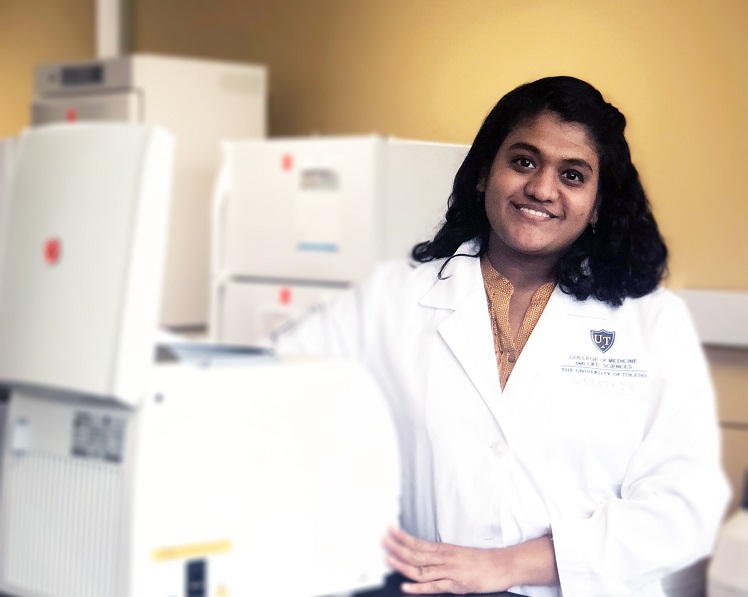
Congratulations to Hallie Dolin, lead author on an article about sepsis in the lab of Dr. Kevin Pan (January 2019).
"Characterization of Pathogenic Sepsis Etiologies and Patient Profiles: A Novel Approach
to Triage and Treatment" in Microbial Insights.




